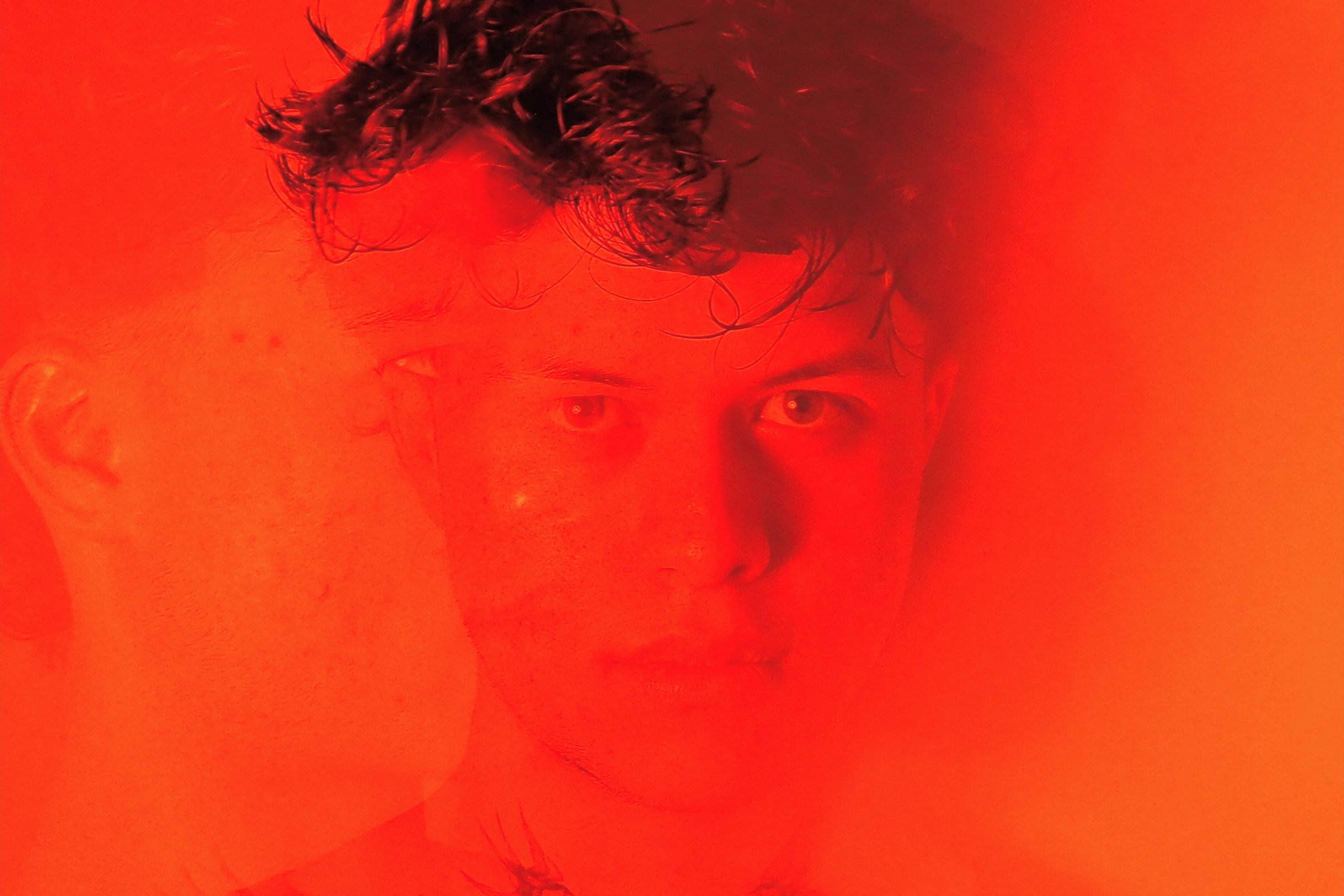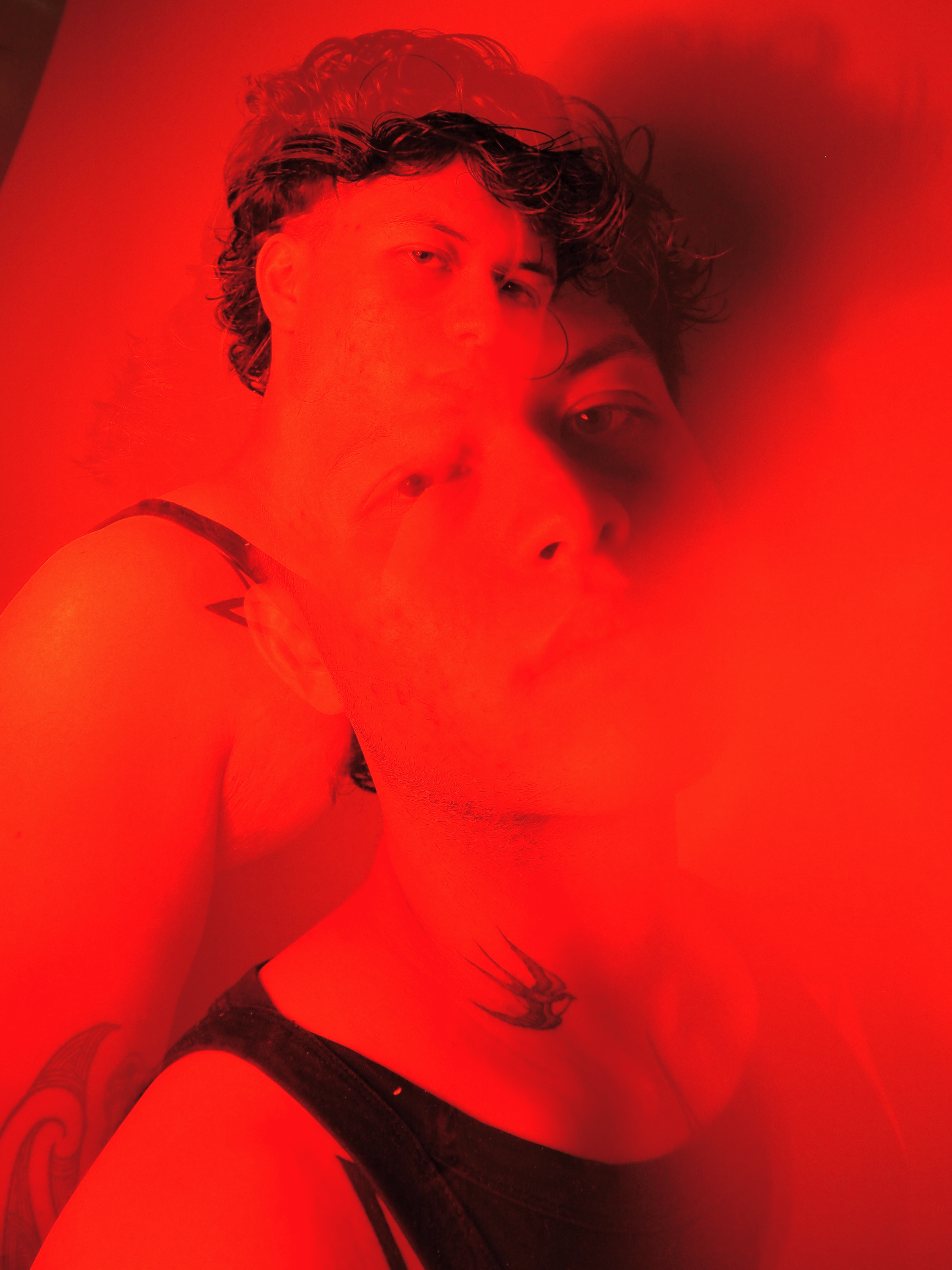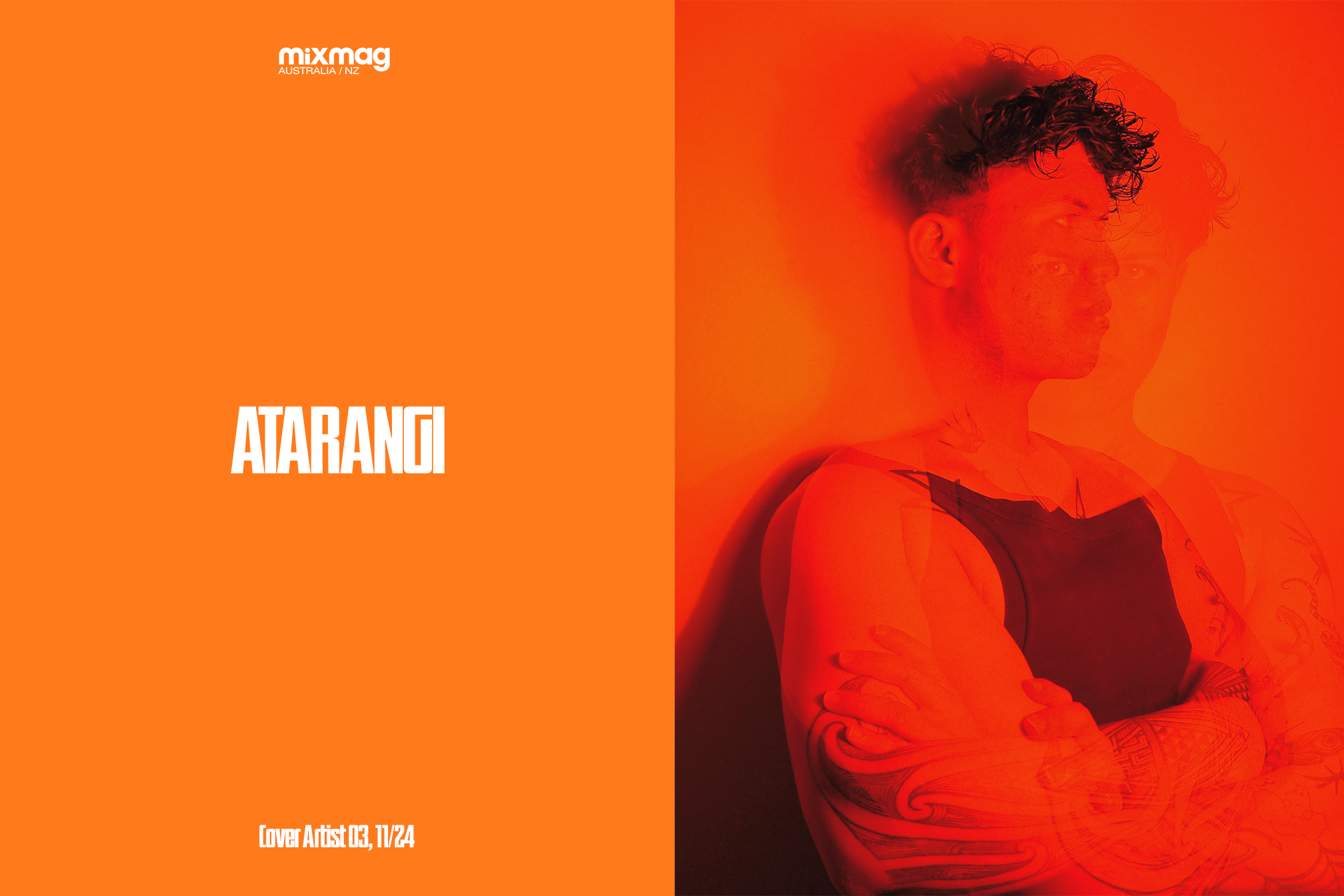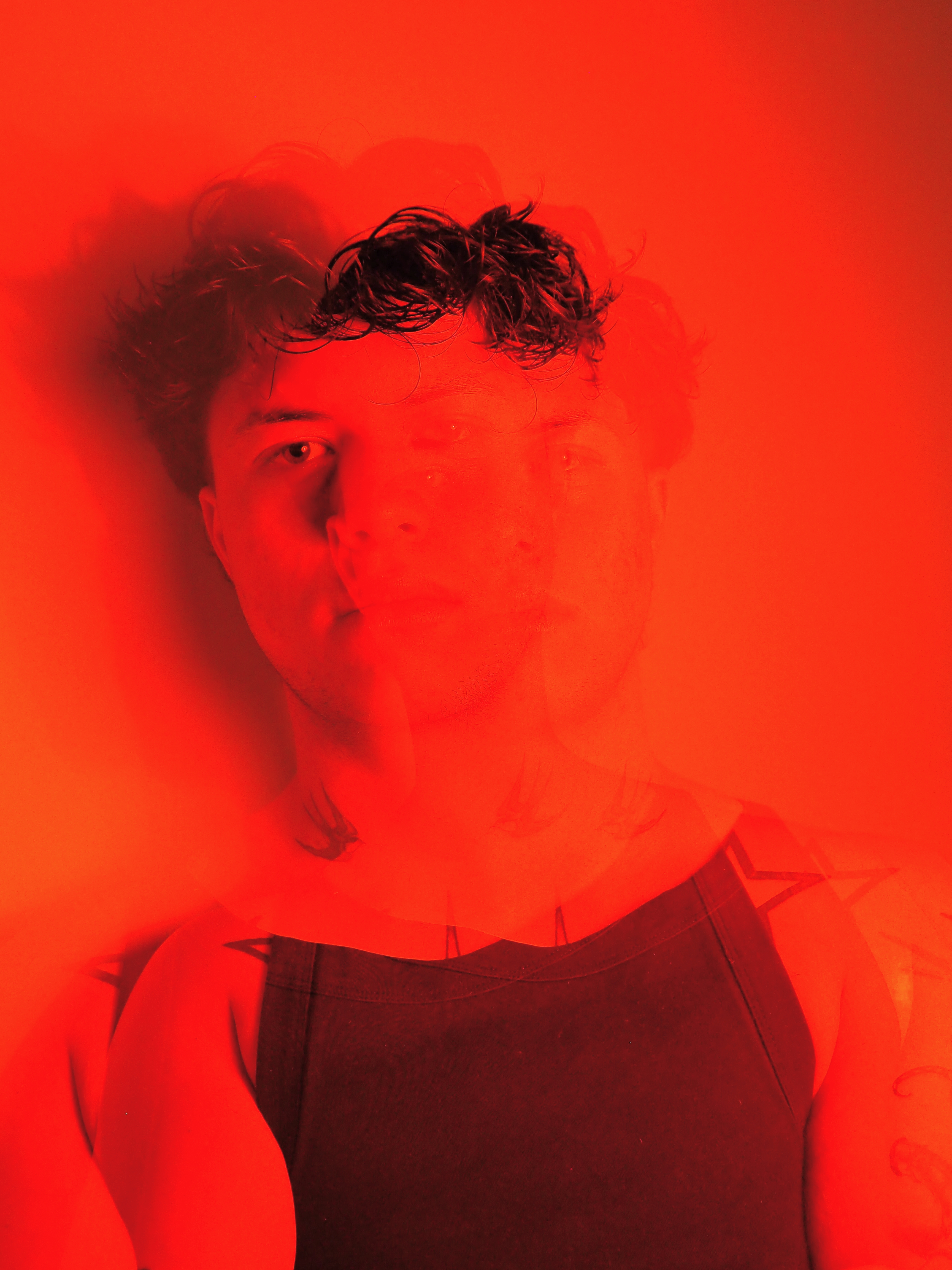 COVER STARS
COVER STARS
ATARANGI is a leader in Aotearoa's next generation queer underground
The Māori DJ is paving his way through Australia's club & festival circuit. He is Mixmag ANZ's Cover Artist for November 2024.
“In Australia, bigger music industry heads are so reliant on queer underground clubbing.
That’s crazy to me, because in New Zealand, the big dogs don’t give a shit.”
-
While Australia and Aotearoa may not feel far away in many respects, something clearly foreign to both of us is one another’s music culture. While Australia’s population and infrastructure has allowed for a huge boom in dance music in recent years, Aotearoa’s is still somewhat in its infancy, with a series of smaller, more community oriented events paving the way for future growth.
Recently bridging the gap between both countries is ATARANGI (he/him), a Māori DJ and burgeoning producer who has in 2024 made the move from his hometown of Tāmaki Makaurau/Auckland to Naarm/Melbourne.
A series of huge bookings and slots throughout the year, including an appearance at Aotearoa’s most recent Boiler Room, has skyrocketed ATARANGI into the spotlight as a representative of Aotearoa’s blossoming underground queer community.
With a perspective on the industry as a whole from his comparatively small-town roots, ATARANGI’s approach to not only his music but the way in which he navigates and operates within Australia’s dance industry, is an approach that few could hope to take.
ATARANGI is Mixmag Australia / NZ’s November 2024 Cover Artist.

ATARANGI is still very new to performing, like many currently dominating Australia’s club circuit. A post-COVID alumni inspired by the promise of an eventual return to community and music seemingly taken for granted up until 2020, you could be forgiven for assuming that ATARANGI, and many like him, are part of a new wave of artists and punters gravitating toward dance music’s popularity.
Thankfully, you’d be very wrong.
ATARANGI grew up around music. Throughout our conversation, he spoke of many points in his life where music, and working in music, was everything to him, starting from an incredibly young age.
“My dad and I would regularly sing mashups with each other in the car. He was a wedding DJ, so DJing had always been in the back of my mind,” he reflected.
“When I was 15, I was a chronically online Twitter nerd,” ATARANGI laughed. “It all started loosely with music journalism, when [I made a Twitter friend] and she gave me my first review pass to Carly Rae Jepsen,” he continued. “For financial reasons, it wasn't really something that I could pursue, but it did kind of spark like light a fire under my ass and be like, I want to work in music for the rest of my entire life.”
It was from this time, early on, that ATARANGI would jump between the different musical offerings available in different cities around Aotearoa. From community radio to working as a gig photographer for a series of indie bands, back to journalism and a job at Serato, ATARANGI quickly became familiar with the size and scope of New Zealand’s music industry.
“It took me a million and one stepping stones to realise where I wanted to end up,” he told me.
Club Immaterial was one of these online clubs, based in Meanjin/Brisbane, a far cry from ATARANGI’s Tāmaki Makaurau, but only a click away.
With time up his sleeve and a drive to embed himself even further into the culture to which he longed so deeply, ATARANGI finally took to a controller and found time to mix wherever he was able. From jarring industrial techno soundtracking his time working part time at an American Vintage store, to mash ups of Charli XCX’s ‘Unlock It’ and ‘Taxi’, ATARANGI was working hard to get good, fast, and wasn’t afraid to ask the people around him for help.
One such person was HALFQUEEN, another Tāmaki Makaurau with Fijian and Pākehā heritage. A core member of Aotearoa’s underground queer scene, she’s long been a huge spokesperson for the region, appearing on all manner of massive lineups across the globe.
When recording his first ever mix, ATARANGI reflected on HALFQUEEN being one of the first to give feedback. “She left so many nice comments and sent me all sorts of good messages. I’m at the point now though where I’m like ‘that was a really bad mix and you knew that’”, he laughed.
Before long, it was time for ATARANGI’s first ever gig, NYMPHO, one of Auckland’s newest and most popular queer events that ATARANGI would soon become a member of.
ATARANGI, whose real name is Liam, admitted that choosing a name was an interesting and difficult process. “I don't want my name to be Liam, cause that's fucking lame. I'm just gonna look like some guy who's a DJ,” he reflected.
“At the time I was exploring my own gender a lot and what gender means to me, or what gender meant to me at that point in time. I feel like I've gone through such a long journey with it. I just Googled androgynous Māori names, because I know a lot of Māori names, but they all kind of pertain to a certain part of the binary because that's how I was raised,” he explained.
At this point in time, ATARANGI was identifying as non-binary, and the name was in that moment an incredibly poignant reflection of not only their identity, but their path in life.
ATARANGI, while translatable in a series of ways, generally means ‘morning sky’ or ‘new beginning’, a very meaningful choice by a person up until this point only otherwise known as Liam. “I like the whole concept of a new dawn, a fresh beginning. It all ties into gender identity, as well as the new job venture, the whole thing.”
ATARANGI had been a core part of Auckland’s ballroom community for a number of years, but with the NYMPHO gig, and accepting of his brand new name, took a step into a whole new era of engagement with music. This may, understandably, to many sound like an intense dramatisation of a decision that to many others would be considered a hobby. However this would be to downplay ATARANGI’s drive and determination to make DJing a core part of how he interacts with and embeds himself into his community.
Aotearoa is a small place, particularly where dance music is concerned. Like much of the rest of the world, the scene is growing bit by bit, but without the same level of investment or patronage that one could come to find in a place like Australia. In running me through the dance music landscape of Aotearoa, particularly the queer underground, it was clear that though he’d been away from home a while, having moved to Australia around nine months ago, he was still acutely aware of what was happening.
“Auckland is the epicentre for queer clubbing… the whole ballroom scene basically lives in Auckland… the Christchurch scene is crazy. I love playing down there because they don’t get anything ever.”

While the intimacy of Aotearoa could suggest some kind of familiarity among different musical subcultures and scenes, as ATARANGI put it, this couldn’t be further from the truth.
“[The queer scene] kind of sits nowhere near anything, which is cool, but it’s also fucking scary. It’s cool to see a lot of us breaking out into the mainstream, but it’s a bit scary when you play these big festivals and all everyone is playing is drum and bass and jungle, or bass music. It’s not ‘fun’.”
Aotearoa’s affinity for drum & bass, jungle and bass music is well known to the point of being a stereotype. While these genres can often be described as “scary”, I took ATARANGI’s comparison to be more a comment on the cultural divide between queer culture & bass culture, rather than one about the sounds they play.
‘Queerness’ within Māori culture is often associated with the term ‘Takatapui’, originally meaning 'intimate companion of the same sex’, but reclaimed in recent years to embrace all Māori who identify with diverse genders and sexualities.
‘Takatapui’ and ‘Faʻafafine’, a Samoan term for people born genetically as men but who identify as women (‘the third gender’), are two concepts that have very clearly made their way into more mainstream queer conversations.
It’s this perspective not only on queer culture, but the incredible focus on queer cultures from Aotearoa and other pacific island regions, that has enabled ATARANGI to thrive in the Australian scene.
“In Australia, bigger music industry heads are so reliant on queer underground clubbing.
That’s crazy to me, because in New Zealand, the big dogs don’t give a shit.”
The decision to move to Australia wasn’t one taken lightly. Originally meant to be in pursuit of more opportunities for music journalism, ATARANGI quickly recognised that Australia’s publishing industry wasn’t doing too much better than Aotearoa’s was. After facing the idea of moving home, “working in corporate and fading into obscurity”, he realised that he had only one choice: “make this music thing work.”
ATARANGI’s time in Australia has been brief, but oh so fruitful. A series of gigs, including an appearance at House Of Mince’s 2023 VIVID show, supporting Marcel Dettmann, and what he feels to be his most affirming gig to date, supporting Skin On Skin.
He quickly recognised one of the key differences between Australia and Aotearoa: the existence of an industry, and one that valued and prioritised queer club culture, for better and for worse.
“I realised that [Australian promoters] care whenI found out that a couple big artists that we booked through NYMPHO were getting booked by Live Nation,” he reflected.
“Like, if we [queer culture] stop what we’re doing, then a whole section of the scene is just going to fucking collapse and die.”
From moving internationally to suddenly being booked for a Boiler Room appearance back home in Tāmaki Makaurau, it’s fair to say that ATARANGI’s rise to prominence has been lightning quick. His unique position as a member of the queer community, as well as his Māori heritage, is something he’s all too aware has assisted in his ability to get gigs quickly. Likewise however, it’s also meant that there are more critical eyes on him, more quickly than ever before.
To suddenly adjust to relative fame is no easy feat, and as he described, it hasn’t been particularly easy or pleasant.
“In my like four or five years of DJing, I’ve never spun out so many times about my job, my placement and where I stand and where I’m seen in this industry as I have in my nine months of living here,” he recounted.
“Expectation is one thing, imposter syndrome sure, but it’s big business, and yet my job is to party. It’s crazy that I have to conduct myself in a certain way."
Being so fresh faced to the Australian industry has afforded ATARANGI with a critical eye that many who have grown up either in or around it may not share. As dance becomes big business, the culture becomes formalised, and what needs to be professional, hard work and initially low paying, is for some entirely the opposite.
This pressure to succeed is something that ATARANGI has felt most acutely as they prepared for their Boiler Room appearance.

“That Boiler Room announcement made me really anxious. My housemates witnessed me have a week-long spin out over the fact that as soon as I post that I’m playing, I’m going to have so many eyes looking at me from different directions.”
The popularity that dance music currently enjoys has, for better and for worse, enabled the careers of young artists to take off in a matter of moments. ATARANGI is one of many afforded the incredible opportunity to feature on some of the world’s largest dance music platforms, while also giving over a huge piece of themselves in return for that platform’s ongoing success and relevance.
While his confidence in himself and his abilities was clearly the point of conversation here, when it comes to his identity as a Maori person, there was no mistaking that a feeling of responsibility to his people was something he felt incredibly proud of.
Our conversation came at an incredibly big time for Māori across Aotearoa, as in the days since we spoke, 42,000 Maori people have marched across the country towards Pōneke/Wellington to protest against a conservative push to redefine the nation’s founding treaty that critics say threatens Maori rights.
“Now, more than ever I feel responsible to be a role model and all of those things. Not just for the people back in New Zealand who are looking at me, but to some extent the people over here who don’t know what’s happening.
Back in New Zealand I was pretty radicalised by just being ‘in it’ you know, and I think now that I’m over here I still feel that same level of radicalisation but need to disperse that information. My reach is wider than just Auckland, it’s wider than just the country I’m from.”
As dance music becomes more universally appealing, many argue that the politics which the culture is built on are becoming more and more lost. ATARANGI told me that in sharing information about the protests in Aotearoa, he was losing followers, 15 on the morning of our interview alone.
“I’m a funny cunt with a backbone, you know?” he joked, sincerely.
When I asked ATARANGI if he felt that politics had a place on the dance floor, he had a very definitive answer:
“100%, now more than ever.
You can’t have a space like a dance floor, playing music that has such political roots that go back so many years, and argue that the space you’re in isn’t political. You know what I mean?
A lot of times the people [complaining about that] are white. 99% of the time it’s a white person who’s saying ‘dance music isn’t political’, but like, your whole life isn’t political. You’re the reason why any of this is happening.
For people like us, it’s so deep, and it’s so meaningful. The music we play often goes back to so many different cultural points.”
Whether from his Maori heritage, his journey with his own gender or his role and leadership in queer spaces, ATARANGI is a fresh new voice to dance music within Australia and the world at large. His journey to fame has been short, but transparent in a time where understanding what impacts the world around us has on who we are, what we want, and how we engage with culture, is to be desired.
“I don’t like knowing that I can separate myself from my self,” he told me earnestly.
As he looks to the future, ATARANGi is understandably looking for a short break. With the promise of some productions well into the future, and a short break from the intense past few months he’s enjoyed, he’s earned some time to himself.
“I talked to my housemate this morning and I was like, ‘I don't know, after Boiler Room, I might just take a hiatus and then go get a job again,’ But, I said that I would do that after I played VIVID last year, and then I did two months of touring.”
-
Jack Colquhoun is Mixmag ANZ's Managing Editor, find him on Instagram.


